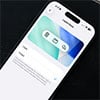There are a lot of ways that iPhones are secured from hacks – by default they’re unable to download potentially malicious apps from non-App Store sources; Apple strictly polices the App Store for apps that may grab illegitimate permissions to users’ devices; and overall, because of these factors, less malware is created targeting iOS than Android devices.
“Apple does a tremendous work preventing the devices from being hacked, and except for the rare and short-lived cases of bugs or zero day issues, like the recent Facetime vulnerability, there is hardly any risk at any given time,” says Gary Davis, chief consumer security evangelist at McAfee.
However, that doesn’t mean there are no security risks for iPhones floating around online.
The 4 Ways Your iPhone Can Be Hacked
1. Downloading malware-ridden apps
Apple has a reputation for policing its App Store more stringently than Google does its Play Store for Android devices, which in general has meant iPhones are less prone to risky or malware-ridden apps.
While still true, there are now more of those risky apps on iOS. One study back in 2017 found that as iOS became more popular with corporate and government users, the percentage of these enterprise devices with malicious apps tripled within a quarter. Hackers were exploiting the side-loading method used by enterprise IT teams to install company apps via a non-App Store service.
And earlier this year, fourteen iOS games were found to be sending user data back to a server associated with an Android malware known as Goldluck. The data included IP addresses and sometimes location data and though the apps didn’t contain any malicious code, the security firm that found the issue said the apps presented a backdoor that hackers could potentially exploit to access app users’ iPhones.
Several iOS apps popular mainly in China, including the messenger WeChat were also infected with a virulent malware called XcodeGhost. Once an infected app was downloaded, the malware would create phishing screens to steal users’ logins and hijack the phone browser to open particular URLs that could potentially be malicious links to download more malware.
Jailbroken iPhones are at a much higher risk for being hacked since users are able to download apps from sources other than the App Store, where malicious programs are less likely to be blocked.
What you can do: Only download apps from the App Store, and always read the permissions an app requests when you first run it.
“Apple makes sure the user is always informed of all permissions requested by the App, but if you approve blindly for an App to manage and fully control your device, you cannot really complain,” says Davis. “You wouldn’t give your house keys to anyone who asks for them, right?”
However, researchers have demonstrated it’s possible to sneak a malicious iOS app into Apple’s official store. The app would appear innocuous on initial review, but after download, its permissions could be updated to carry out harmful actions that weren’t initially detectable. In this case, the onus would be on Apple to fix the vulnerability that allows such an app to obtain more access after installation.
2. Using public Wi-Fi
As meticulous as you may be about downloading legitimate apps from official sources, the greatest security risk comes when your iPhone is on a public Wi-Fi network.
“As long as users only install apps from the App Store the biggest risk factor is really from the network side,” says Davis. “Wi-Fi hotspots are being hacked and hackers can introduce man-in-the-middle attacks that can steal passwords or gain access to phones.”
Man-in-the-middle attacks mean that hackers intercept the data being transmitted between your iPhone and the Wi-Fi server, an especially easy task if you’re using an unencrypted hotspot - and according to Kaspersky Lab, over one in four hotspots are unencrypted. Public Wi-Fi hotspots are also at risk for session hijacking, where thieves may attempt to steal browser cookies associated with an online session with a service – for example, Facebook or Skype – and use those to login as the real owner and take over the account.
What you can do: Use a VPN app to protect your privacy on public Wi-Fi. This encrypts all traffic between your iPhone and any server it communicates with, making it much harder for hackers to spy on your data. It’s a good idea to choose a paid-for VPN – free apps base their business model on monetizing user data, and with VPNs, the user data they have access to is someone’s entire browsing history. We like NordVPN (Disclosure: we have an affiliate relationship with NordVPN) and ExpressVPN.
3. Using a weak Apple password
If you have a weak Apple password, it’s conceivable that your iPhone could be hacked via iCloud – especially if your email address is already floating around on the dark web and hacker forums from past breaches of various platforms.
Much hacking involves automated password cracking using botnets (networks of people’s computers that have been compromised by malware), which constantly try logging in to online accounts using lists of known email addresses and password cracking tools based on common passwords and dictionary words.
If your iCloud account is breached, that means a hacker can access the photos in your Photo Stream, the files in your iCloud Drive, your email, browsing history, calendar and messages – and what’s more, potentially use this information to hack your other accounts.
What you can do: Create a strong password and turn on two-factor authentication (2FA) for iCloud. A strong password vastly increases the time needed for a brute-force attack to crack your Apple account (think hundreds of years), while 2FA means that even if the password is guessed (say through a phishing screen, where the user is tricked into entering their login), iCloud will request a 2FA code – sent by SMS or email - before granting access. And for help automatically creating and managing your strong passwords, it's a good idea to use one of our picks for the best password managers.
4. Taking advantage of bugs in iOS
Last year, a huge vulnerability was discovered in the Intel chips that power iPhones, iPads, Macs and Apple TVs, affording access to users’ most sensitive information. This vulnerability would need to be exploited by a malicious program, which could be a downloaded app or Mac program – but could also come from a malicious website. Luckily, no known devices have been affected, and updates to the MacOS and iOS were said to have patched some of the issues.
Another significant bug was discovered in FaceTime that allowed callers to hear the audio of the person they were calling, before they had picked up. If the receiver pressed the power button from the lock screen, their video would also be sent to the caller, unbeknownst to them.
The bug affected devices on iOS 12.1 and later, and Apple subsequently released an update to patch the issue.
What to do: Always download updates as soon as they’re available. In these particular cases, the presence of the vulnerabilities didn’t immediately correlate to security breaches – but it could have if these vulnerabilities had been found by criminal hackers rather than ‘white hat hackers’, such as security researchers.
5 ways to protect your iPhone from being hacked
Securing an iPhone from hacks comes down to general security hygiene. Follow these five steps to ensure you stay safe.
1. Make sure your iOS is up to date
The easiest way to ensure your iOS is up to date is to turn on automatic updates. You can find the option by going to Settings > General > Software Update
2. Only install apps from the App Store
When you jailbreak an iPhone, you install an unauthorized version of iOS. People do this to gain more access to the functionality of the hardware, but they also bypass some of the security features Apple has put in place to keep hackers out. If you haven't jailbroken your iPhone, you won't be able to install apps from other sites. Staying with the official version of iOS and using the App Store will provide the most protection.
3. Always read the authorization dialogs an app presents when you first run it
Most apps don't need full access to your phone. So when you install an app, make sure that the access the app requests is in line with the functionality it delivers. If an app requires too much access, you should consider an alternative.
4. Use a VPN on public Wi-Fi
VPNs provide end to end encryption from your computer to whatever website or service you're using. If you're using a public Wi-Fi network, it makes sense to keep all of your data encrypted so you're not vulnerable to hackers hijacking your session and stealing your data. We like NordVPN (Disclosure: we have an affiliate relationship with NordVPN) and ExpressVPN.
5. Install an iOS security app
The McAfee mobile security app prevents you from opening malicious web sites, detects if a Wi-Fi hotspot is compromised and comes with a VPN feature, while Avira similarly protects from phishing links and can check if your email has been hacked. Sophos checks Wi-Fi hotspots for cyberattacks, along with offering a 2FA code and password generator.

















From Wolf Peiser on March 21, 2019 :: 6:13 pm
When I read articles about security, hacking and WiFi usage, there is never mention about the facial recognition feature and if that provides an extra level of security when in risky environments such as public WiFi or guest WiFi sites.
If I log into my bank account via my iPhone while at the library or in a coffee shop, and both phone and the bank permit entry or usage via facial recognition, what risks am I exposed to?
Reply